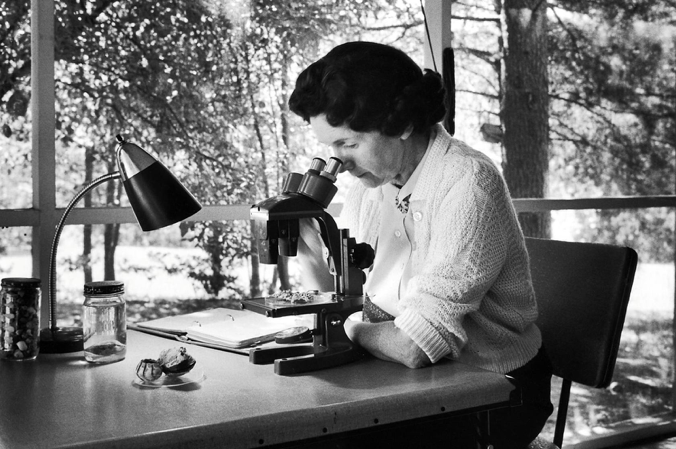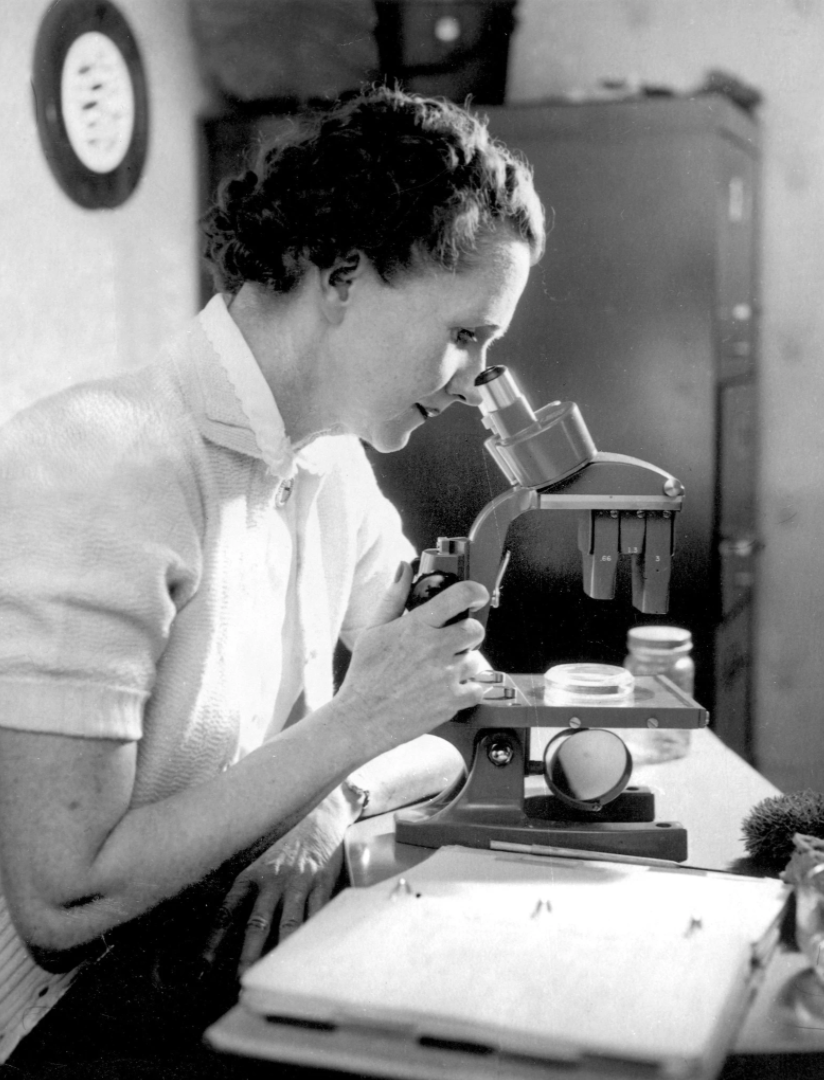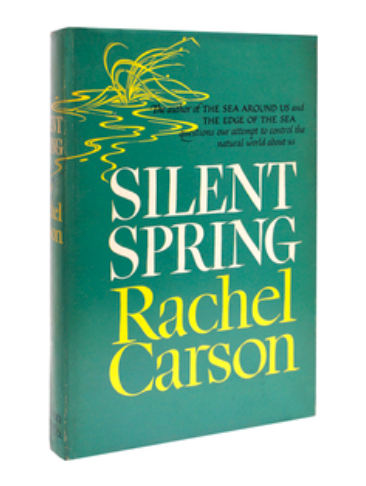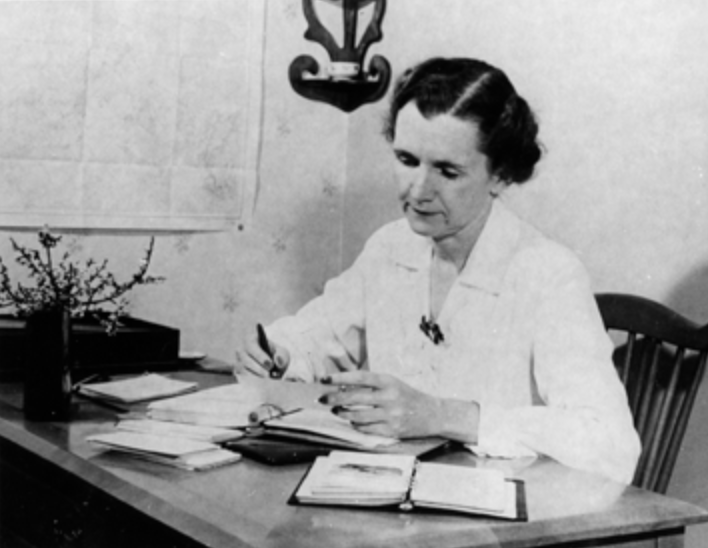"SILENT SPRING"

Courtesy of the Chronicle of Higher Education

Courtesy of the Chronicle of Higher Education
Following the success of her sea trilogy, Carson spent the next years looking into conservation. She joined many environmental groups and toyed with the idea of writing environmental-themed books.

Courtesy of the New York Times
In 1957, the topic of DDT resurfaced in her research. She devoted whatever time she had to read federal proposals, piles of data, and articles about widespread pesticide use.
“In each of these situations, one turns away to ponder the question: Who has made the decision that sets in motion these chains of poisonings, this ever-widening wave of death that spread out, like ripples when a pebble is dropped into a still pond?” - Rachel Carson
In 1958, Carson began writing Silent Spring, but two years later she was diagnosed with breast cancer. Later she found that the doctor had withheld information from her and the cancer had already spread. After completing radiation treatment, she continued her work.
“Rachel Carson and Silent Spring were the sparks that lit long-smoldering tinder.” - Robert Musil

Courtesy of the National Resources Defense Council

Courtesy of the Rachel Carson Council
“Rachel Carson was one of the few people capable of writing with the scientific thoroughness her subject required and the engaging writing style that could rivet a nation’s attention.” - American Chemical Society
Courtesy of PBS.org